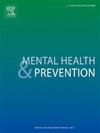Reflective journaling on suicide and self-harm related online use: An intervention approach for reducing online harm and mental health impact
IF 2.4
Q2 Medicine
引用次数: 0
Abstract
Objective
Self-harm and suicide-related online use can bring harms and benefits for users. Research suggests a need to improve user metacognition around online engagement to manage these conflicting effects, but behavioural interventions to achieve this are lacking. We aimed to analyse data from a 6-month longitudinal qualitative study, in which participants journalled about their self-harm and suicide-related online use as part of the study.
Methods
Participants were interviewed at three timepoints (n = 9 participants, 25 interviews) and completed a daily reflective diary between interviews. Experiences of diary use were explored qualitatively during interviews and in free-text diary entries.
Results
All participants derived benefits from journalling about their engagements with self-harm and suicide-related online content, such as increased insight about the nature and impact of their online use. Some in turn reported positive behaviour changes. However, daily completion was burdensome and some participants reported potential costs, including increased attention to self-harm content.
Conclusions
Journalling about online activity should be explored as potential individual-level intervention to tackle harmful online use and reduce linked mental health morbidity, both within and outside of clinical setting. Co-designed research with lived-experience users and practitioners will be essential for maximising safety and likely success.
自杀和自我伤害相关网络使用的反思性日志:减少网络伤害和心理健康影响的干预方法
自我伤害和自杀相关的网络使用可以给用户带来伤害和利益。研究表明,需要提高用户对在线参与的元认知,以管理这些相互冲突的影响,但缺乏实现这一目标的行为干预。我们的目的是分析一项为期6个月的纵向定性研究的数据,在这项研究中,参与者将他们的自残和自杀相关的在线使用记录下来,作为研究的一部分。方法在三个时间点对参与者进行访谈(n = 9名参与者,25次访谈),并在访谈之间完成每日反思日记。在采访和自由文本日记条目中,对日记使用的经验进行了定性探索。结果所有参与者都从记录他们与自残和自杀相关的在线内容的接触中获益,例如增加了对他们在线使用的性质和影响的洞察力。一些人反过来报告了积极的行为变化。然而,每天完成是一种负担,一些参与者报告了潜在的成本,包括增加对自残内容的关注。结论在临床内外,应探索在线活动日志作为潜在的个人干预措施,以解决有害的在线使用问题,并减少相关的心理健康发病率。与现场体验用户和从业者共同设计的研究对于最大限度地提高安全性和可能的成功至关重要。
本文章由计算机程序翻译,如有差异,请以英文原文为准。
求助全文
约1分钟内获得全文
求助全文
来源期刊

Mental Health and Prevention
Medicine-Psychiatry and Mental Health
CiteScore
2.10
自引率
0.00%
发文量
22
审稿时长
24 days
 求助内容:
求助内容: 应助结果提醒方式:
应助结果提醒方式:


